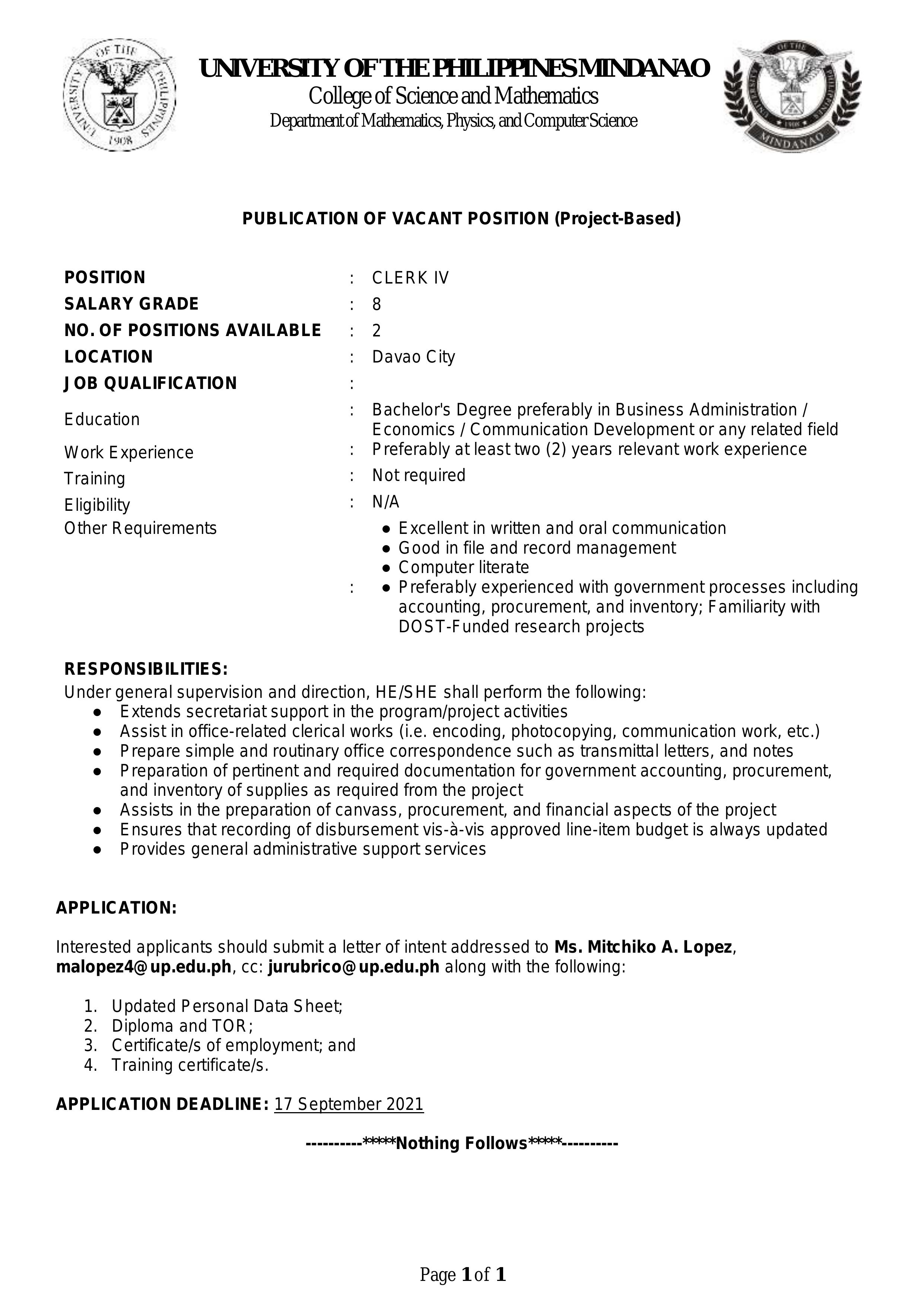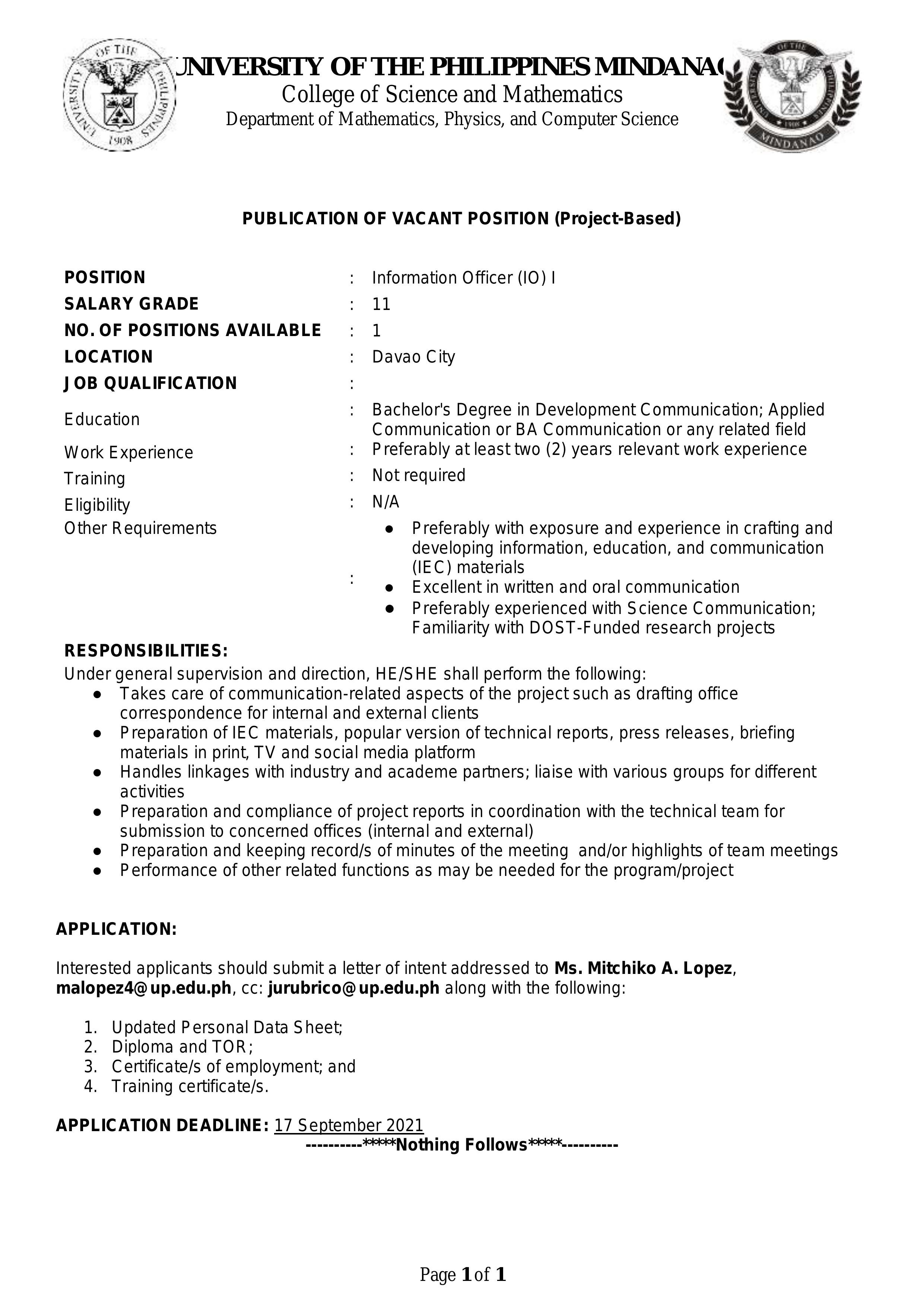Hiring for SkAI-Pinas project
 |
 |
 UP Mindanao's Center of Applied Modeling, Data Analytics, and Bioinformatics for Decision Support Systems in Health (AMDABIDSS-Health) will conduct a BioStatistics Workshop for students of state colleges and universities on August 25-27, 2021, online via Zoom. The workshop is a response to the number of applications received for the newly-opened internship slots in AMDABIDSS-Health. Assoc. Prof. May Anne E. Mata, AMDABIDSS program leader, said the applicants were students from varied academic degree courses under different universities. "One reason for this increased number of applications is the upcoming practicums and midterms in state universities," she said. "Our internships will offer valuable experience to these students and to prepare them we will be giving lectures from our well-trained instructors in the Department of Mathematics, Physics, and Computer Science (DMPCS) and researchers from the AMDABiDSS-Health," she said. The lecturers are Ms. Sherelyn Evangelio and Ms. Kim Dianne Ligue of the DMPCS, and Ms. Johanna Marie Peralta and Mr. Zython Paul Lachica of AMDABIDSS-Health. UP Mindanao Chancellor Larry Digal will contribute words of inspiration to the workshop participants at the close of the workshop on August 27, 2021. The BioStatistics Workshop addresses the sustainable development goals on health, education, life on land, and partnerships for the goals.
UP Mindanao's Center of Applied Modeling, Data Analytics, and Bioinformatics for Decision Support Systems in Health (AMDABIDSS-Health) will conduct a BioStatistics Workshop for students of state colleges and universities on August 25-27, 2021, online via Zoom. The workshop is a response to the number of applications received for the newly-opened internship slots in AMDABIDSS-Health. Assoc. Prof. May Anne E. Mata, AMDABIDSS program leader, said the applicants were students from varied academic degree courses under different universities. "One reason for this increased number of applications is the upcoming practicums and midterms in state universities," she said. "Our internships will offer valuable experience to these students and to prepare them we will be giving lectures from our well-trained instructors in the Department of Mathematics, Physics, and Computer Science (DMPCS) and researchers from the AMDABiDSS-Health," she said. The lecturers are Ms. Sherelyn Evangelio and Ms. Kim Dianne Ligue of the DMPCS, and Ms. Johanna Marie Peralta and Mr. Zython Paul Lachica of AMDABIDSS-Health. UP Mindanao Chancellor Larry Digal will contribute words of inspiration to the workshop participants at the close of the workshop on August 27, 2021. The BioStatistics Workshop addresses the sustainable development goals on health, education, life on land, and partnerships for the goals.
Lock full review www.8betting.co.uk 888 Bookmaker